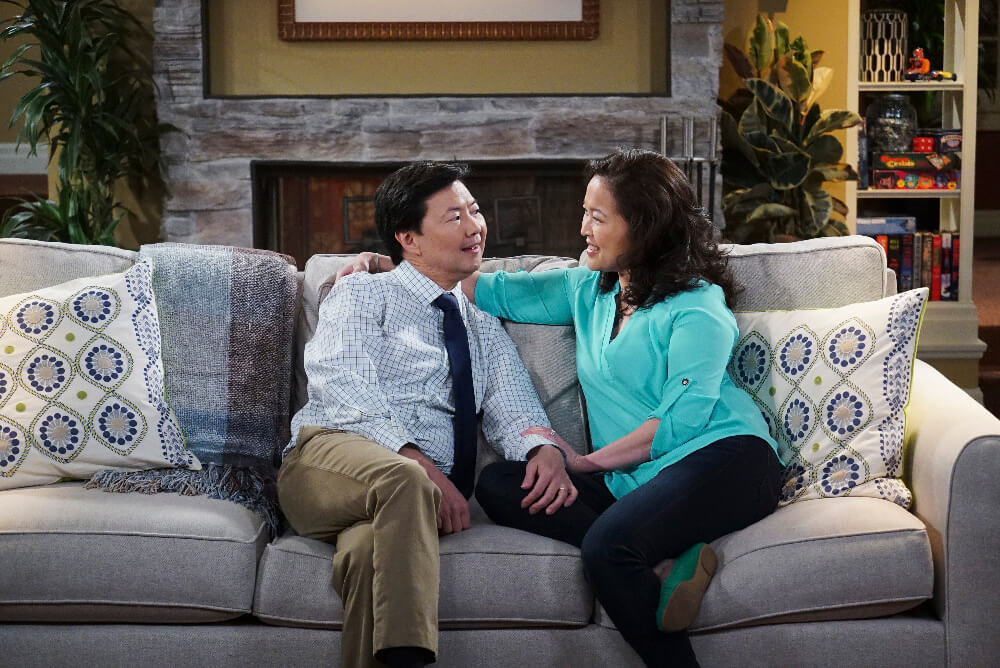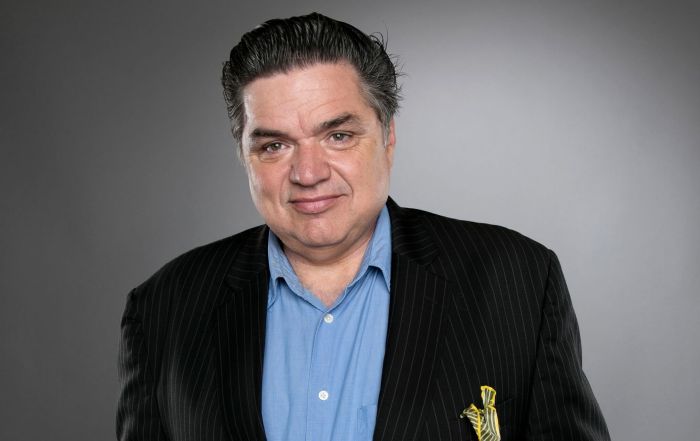Even if you don’t know his name, chances are you’ve seen Ken Jeong in something. He originally popped up as a very brusque doctor in “Knocked Up,” but has since appeared in a number of comedy hits over the years, from the “Hangover” movies to a long run on “Community.” Now, he’s finally getting a chance to do his own thing on “Dr. Ken,” a sitcom loosely based on his life, where he stars as an irritable doctor struggling with how to be a good parent to his kids. Having been part of a number of big ensembles, how does it feel to get your own show?
Honestly, I’m just so grateful. You can tell, here, it really is a great ensemble. You know, though my name is in the title, I do think of this as an ensemble driven show. I think it really is because, you know, being on “Community” for six years, all the projects I’ve done have been ensemble driven. “Knocked Up,” “The Hangover,” all of them, it’s never been about one person. “Community” especially. I think that’s pretty deeply rooted in my DNA. So really as the show evolves, to me, it’s really more about the ensemble. It’s great. RELATED: Philip Winchester is ready for action on “The Player” How much of your real life has ended up in the show?
Everything comes from a place of reality and is always fictionalized for effect. There are definite episode ideas I want that have come from a real place, from a real point in my life, from my career in medicine and then it is organically massaged into something that’s comedic or something that’s usable as a runner or a story. That’s been the fun part of it. There’s really cool stuff that you wouldn’t know, watching the final product, it emanated from that. This is easily the most grounded character I’ve ever had because it’s based on me. Is it hard to transition from the oddball characters you’ve played in the past to more of a straight man?
It’s great that the public can accept me for my outsideness, like on “Community and “The Hangover, so it’s actually easier in my opinion to transition to the straight man/foil than most people think because I think it’s sometimes it’s actually harder if you’re used to playing the straight person and the public so identifies you with that, if you doing something remotely crazy, that can be jarring. RELATED: Fred Savage is playing the everyman on “The Grinder” Will we see any of your “Community” castmates showing up?
I would love that. I’m talking to all of them at some point, having them all on in various shapes and forms, getting the band back together. … They know the door is always open for that. Those guys are my family, and there’s so much love that I have for those guys. In terms of television, I wouldn’t be here if it wasn’t for “Community.” Everything I’ve learned in television is from “Community.” Suzy Nakamura stars as Jeong’s wife, Allison, who’s a psychiatrist. We asked her a few questions about what it’s like to play someone based on the real thing.
Do you think there’s a trend towards Asian depiction on television? Is there a reason it’s coming to the forefront now?
I don’t think it’s a trend, per se. I do think 20 years is a long time [to wait] to see any person of color as a typical family depicted on TV [ed. note: since Margaret Cho’s “All American Girl” in 1994]. And, unfortunately, when you have a show like the “George Lopez Show” that has a multicultural family, people see it as that culture’s show. But with the success of “Black-ish” and “Fresh Off the Boat,” you realize that these stories are universally funny and universally appealing. I think that we will, hopefully, be less and less identified as an Asian show, or a black show, or a Hispanic show, or anything like that. Is there a pressure to be representative in the right way?
Yes, have you heard the term “rep sweats?” It’s supposed to describe this tense feeling you have when you see someone that’s supposed to be representing you. I thought it was a great term. It’s sort of this anxiety that you feel that no one really talks about when someone says, “I’m representing you.” We’re not responsible for telling anyone else’s story but our own. Are you learning more about psychiatry now?
I’m going to do my best. But I love that my character feels that she has a bit of a one up on Ken because she understands his psyche. His wife in real life, Tran, is a big inspiration to me because she’s very calm and she does ground him in a way and I loosely based my character off her energy. She’s the voice of reason in more ways than one. And she sort of is a calming element. Did she give you any tips?
No, but I remember I looked to her after the taping and when she was laughing, I was happy.
Ken has such a big comedic persona, but he comes off muchmore low key in person.
He is! But a lot of comics are like that because he’s playing a certain character but he can be very serious — so you can imagine him as a doctor, right?But that’s what’s great and that’s what I’m looking forward to this season because he’s fearless. As an actor, he’s fearless but he takes everything seriously. Had you seen [TV son]Albert Tsaion“Trophy Wife”?
I loved him on “Trophy Wife” and when I heard he was going to be part of this, that made me even more excited to be on this show.
He’s such a natural seeming actor.
Yes. A lot of actors, not just kid actors, will pretend to be, because that’s what acting is [laughs], pretend to be this type of person,but that’s 75 percentAlbert.
Ken Jeong and Suzy Nakamura talk real life inspirations and representation on ‘Dr. Ken’

Danny Feld, ABC


















